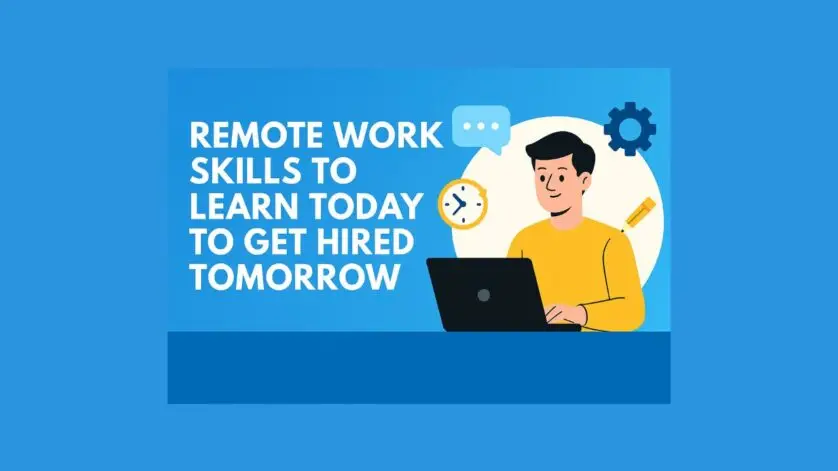🔥 1. Digital Communication Skills
When working remotely, communication is everything. You must be able to express your ideas clearly via:
- Emails
- Chat (Slack, Teams)
- Video calls
- Project updates
What to Learn:
- Writing professional emails
- Video call etiquette
- Using collaboration tools like Zoom, Google Meet, Slack
🎯 Tools to Practice: Grammarly, Loom, Notion
🔥 2. Time Management & Self-Discipline
Working from home means managing your own time. Employers look for remote workers who are reliable, focused, and productive without supervision.
What to Learn:
- Creating your daily schedule
- Blocking distractions
- Prioritizing tasks using Eisenhower or Pomodoro methods
🎯 Tools to Practice: Google Calendar, Trello, Todoist
🔥 3. Remote Collaboration & Teamwork
Being a solo remote worker doesn’t mean you’ll work alone. Most roles require asynchronous communication and real-time collaboration with teams in different time zones.
What to Learn:
- Using project management tools
- Giving and receiving feedback online
- Participating in virtual team meetings
🎯 Tools to Practice: Asana, Notion, Miro, Microsoft Teams
🔥 4. Writing & Content Creation
Good writing is the #1 skill for remote roles in marketing, sales, support, and admin. From emails to social media captions and blog posts — your ability to write well gives you a competitive edge.
What to Learn:
- Copywriting basics
- Content strategy
- SEO writing (if going for marketing roles)
🎯 Tools to Practice: Canva, ChatGPT, Google Docs, Hemingway Editor
🔥 5. Tech Literacy (Even for Non-Tech Roles)
You don’t need to be a coder to work remotely — but you do need tech confidence. Most jobs require:
- Navigating dashboards
- Using CRMs
- Troubleshooting basic issues
What to Learn:
- How to use cloud tools like Google Workspace
- File management on tools like Dropbox
- Using Zoom, Loom, and screen recording tools
🎯 Tools to Practice: Google Drive, ClickUp, Airtable
🔥 6. In-Demand Hard Skills for Remote Jobs
Here are specific skills that are currently in high demand in remote job markets:
| Skill | Industry | Salary Range (Remote, Global) |
|---|---|---|
| SEO & Content Marketing | Marketing | $15–$50/hour |
| Graphic Design (Canva, Figma) | Design | $20–$60/hour |
| Web Development (WordPress, React) | Tech | $25–$100/hour |
| Virtual Assistance | Admin | $10–$30/hour |
| Social Media Management | Branding | $15–$45/hour |
| Data Entry & Research | Support | $5–$20/hour |
👉 Learn via: Coursera, Udemy, HubSpot Academy, Google Digital Garage
🔥 7. Resume & LinkedIn Optimization
What’s the point of learning skills if recruiters can’t find you? Learn how to showcase your skills the right way:
What to Do:
- Use ATS keywords in your resume
- Optimize your LinkedIn headline and About section
- Add media files like portfolio links, certificates, and case studies
🎯 Use Tools Like: Resume.io, Enhancv, or my Job Toolkit Bundle (linked below 👇)
✨ Bonus: Learn How to Use AI Tools (Like ChatGPT)
AI isn’t replacing jobs — people who know how to use AI will replace those who don’t.
What to Learn:
- Prompt writing
- Automating repetitive tasks
- Enhancing creativity with tools like Canva + ChatGPT
You don’t need a fancy degree or 10 years of experience to land a remote job. You need the right skills, the right tools, and the right visibility.
Start small. Pick 1–2 skills. Build your portfolio. Update your resume.
And most importantly — keep learning.

